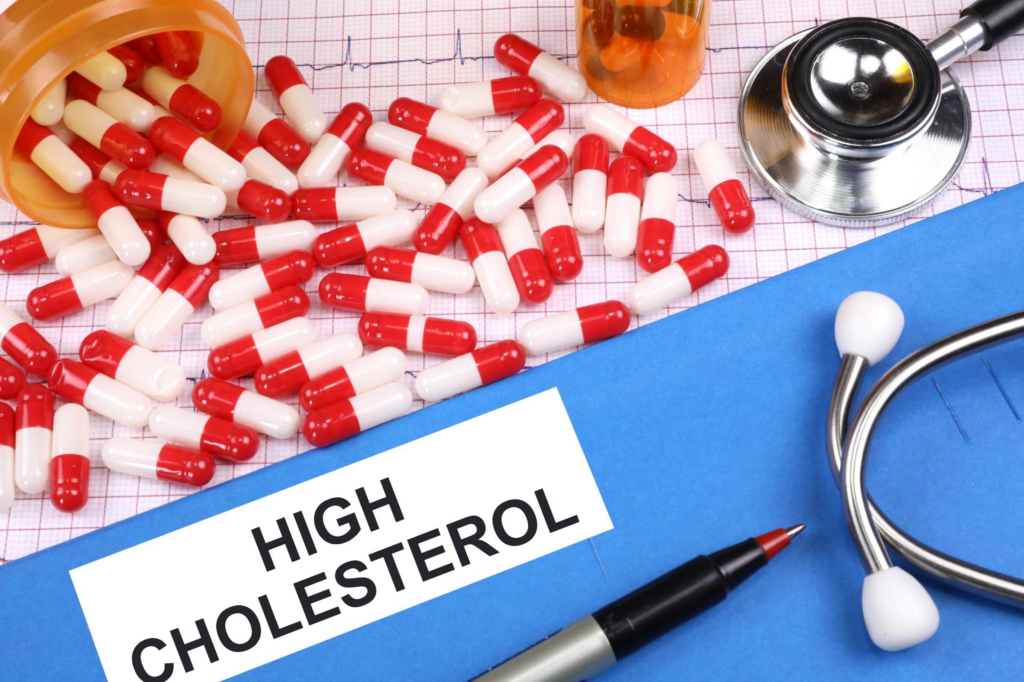The ground-breaking treatment to be launched in India this month.

Market sources claim that the cost of the medication in India will be Rs 1.2 lakh per injection. This month, a new blood lipid-lowering medication is scheduled to be introduced in India. It is expected to significantly lower blood levels of low-density lipoprotein cholesterol (LDL-C), also known as “bad” cholesterol and a major risk factor for heart attacks and strokes.
There’s a catch, though. Many patients who require therapy may not be able to afford Inclisiran, as it costs around Rs 1.2 lakh each injection, according to market sources.
Patients with high bad cholesterol will need two injections of the medicine, made by Swiss pharma giant Novartis, per year, say company sources.
In depth
A study conducted by the Indian Council and Medical Research and the Madras Diabetes Research Foundation, which was published in The Lancet last year, found that dyslipidemia, a disorder characterised by abnormal blood levels of lipids such as cholesterol, LDL-C, triglycerides, and high-density lipoprotein cholesterol (HDL-C), affects about 213 million people in India, or nearly 24 percent of the country’s total population.
The medication has undergone worldwide clinical testing in India.
Here are some key points about inclisiran:
- Mechanism of Action: Inclisiran is administered through injection and works at the genetic level by reducing the production of PCSK9, allowing the liver to remove more LDL cholesterol.
- Dosage: The drug is typically administered as an injection a few times a year, making it a convenient option for individuals who may have difficulty with daily or more frequent medication.
- Effectiveness: Clinical trials have shown promising results in terms of reducing LDL cholesterol levels, and it may offer a new approach to managing high cholesterol, particularly in individuals who may not achieve adequate control with traditional statin medications.
- Potential Advantages: Inclisiran’s less frequent dosing schedule may improve adherence to medication regimens compared to daily medications.
- Side Effects: As with any medication, inclisiran may have potential side effects. Common side effects reported in clinical trials include reactions at the injection site, though serious side effects are rare.
The potential market for Inclisiran in India, according to Dr. Vaibhav Jain, associate consultant in cardiology at Fortis Memorial Research Institute in Gurugram, may be influenced by a number of variables, including the drug’s accessibility, price, and availability as well as physicians’ and patients’ awareness of and acceptance of the novel treatment.
The three most prevalent types of dyslipidemia in the nation are high triglycerides, low HDL cholesterol, and borderline high LDL cholesterol. Angina (chest pain from insufficient blood flow to the heart) and heart attacks are examples of atherosclerotic cardiovascular diseases (ASCVD), which are caused by plaque accumulation in the arteries as a result of high LDL-C, or “bad,” cholesterol.
The new drug
The ideal amount of bad cholesterol for those with diabetes or heart disease is 100 mg/dL (milligrammes per decilitre). For healthy individuals, the near-optimal range is between 100 and 129 mg/dL, and the borderline high range is between 130 and 159 mg/dL. Anything above this level is considered high.
Under the brand name Leqvio, inclisiran has been marketed as a dietary supplement for primary hypercholesterolemia or mixed dyslipidemia since 2020 in the European Union and since 2021 in the United States and the United Kingdom. According to corporate sources, the suggested dose is 284 mg, administered as a single subcutaneous injection. The first dose should be given after three months, and then every six months after that.
Medications known as statins are commonly used to decrease cholesterol levels. They do this by preventing the liver’s HMG-CoA reductase enzyme from doing its job. Contrarily, inclisiran is a member of a different class of medications referred to as gene-silencing medications or small interfering ribonucleic acid (siRNA) therapies. This functions by “silencing,” or inhibiting, the PCSK9 gene, which improves the liver’s capacity to eliminate dangerous cholesterol from the blood.
Conclusion
Thus, Inclisiran is a novel type of drug known as a small interfering RNA (siRNA). It works by targeting and inhibiting a specific gene responsible for producing a protein called PCSK9.
PCSK9 normally reduces the liver’s ability to remove LDL cholesterol from the blood. By inhibiting PCSK9, inclisiran helps the liver remove more LDL cholesterol, thus lowering overall cholesterol levels in the bloodstream
The primary barrier to the new lipid-lowering treatments, according to Dr. Ambuj Roy, a professor of cardiology at the All India Institute of Medical Sciences (AIIMS) in New Delhi, is their cost. Even in the West, their uptake has fallen short of expectations, and there is a dearth of long-term data regarding these medications, which are lifelong.
